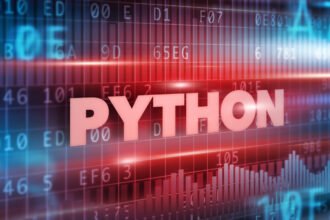It has proven to be quite difficult to land a quality job in the data science field given the high number of qualified college graduates entering the field every year. There’s also a lack of investment in data-related businesses, which is a lost opportunity to create more employment opportunities in this critical market. Governments have also failed to create grant opportunities to spur self-employment in this field.
For beginners looking to jump in, it’s hard to compete. The companies that are hiring are looking for experienced individuals; making it difficult for those that only have a degree and a few months of internship.
If you want to succeed in this tough market, you’ll need to use advanced strategies to stand-out above the rest. One such strategy has proven to be networking, where aggressive candidates engage with peers in the industry on an intellectual level, with an aim towards acquiring insider information on the most lucrative opportunities before they become public.
Future Data Scientists and The Data Science Industry Will Benefit
In the data science industry, as the number of internet users increases, so does the amount of data generated. Trends clearly indicate the need for more data scientists soon, who may be able to extract useful information from large volumes of both structured and unstructured data. To aid in this task, virtual networking is playing a significant role as it provides an elite environment where data scientists may find pre-installed and pre-configured data science tools. These proven software packages, promoted through recommendations from experienced professional, help to save time and improve the overall efficiency of the entire data science sector.
Persons with skills and experience in virtual networking enjoy an added advantage in the job market as potential employers won’t have to spend time and resources in training them. They’ll already understand the basics based on their relationships with established pros. Employers can focus on streamlining the potential employee’s roles and responsibilities.
Also, persons with skills in Virtual Networking stand a chance to land a job in other business sectors, apart from data science, as they can do statistics and research projects to help managers make informed decisions. The benefits go far beyond initial employment. Virtual Networking may be used in real-time to help decision makers access a pool of on-demand talent – built through personal relationships – to assist in cases where large volumes of data must be analyzed and credible information generated in limited time.
Additional Benefits of Virtual Networking
On another note, Virtual networking is unique in the sense that it allows for real-time file sharing by utilizing the Remote Frame Buffer (RBF) protocol, which basically allows the keyboard and mouse activities in one computer to be remotely visible on several other computers. This unique feature allows data scientists to utilize data stored in various devices, seamlessly extracting information. Because of this, data scientists can spot unexploited ideas and opportunities, and may in turn use this to lure investors in different sectors to invest with an aim of enriching their lives and creating more job opportunities. This practice directly contributes to a stronger, data-driven economy.
Finally, due to the growth trends in internet-usage, career opportunities and vacancies have increased exponentially in the data science industry. Career opportunities such as Data Mining, Data Architecture and Data Analysis didn’t even exit a decade ago. Today they are amongst the most lucrative jobs available to younger workers entering the job market.
However, one must be qualified with sharp skills in Artificial Intelligence, Machine Learning and Hadoop, and many more evolving technologies. These are all courses which evolve with time, requiring continuous refresher courses, empowering professionals to keep up with the industry trends.










